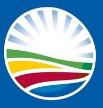KZN Budget: MEC tries to patch up a floundering provincial economy
6 March 2020
Today, KwaZulu-Natal (KZN) Finance MEC, Ravi Pillay, delivered what can only be described as a patch-job provincial budget for the 2020/2021 financial year – one in which he attempted to cover up the real fiscal dilemma that the province finds itself in.
This year, KZN once again finds itself at the mercy of poor and indecisive ANC policies at a national level with the funding of failing State Owned Enterprises (SOEs) clearly negatively affecting provincial budget allocations. Added to this is the burdening debit deficit draining our fiscal resources at a national level.
Today’s KZN budget was also a clear case of having to do more with less. This was evident with the province dipping into its crucial contingency reserve which will now be reduced to R350 million. In essence, KZN no longer has an adequate safety net.
The presentation also made it evident that the KZN Treasury has its work cut out and that if it is to fulfil its role as guardian of the public purse, it will have to use its teeth to keep departments accountable when it comes to expenditure. This on the back of well under inflation financial allocations to Treasury.
Put simply - there is no room for over-spending nor is there any room for error when it comes to KZN utilizing the funding that it does have.
This is particularly important given that the biggest budget cuts over the MTEF period lie within some of the province’s most critical service delivery Departments of Agriculture, Education, Health, Transport and Social Development. While the cuts are not apparent in the current year an analysis of the outer years identifies the real challenges ahead.
Of further concern are the minimal increases in both infrastructure and maintenance budgets in the province and it appears that these reductions are now being used to fund operational budgets. KZN has become synonymous with poor maintenance spend, ultimately resulting in the degradation of provincial assets.
While MEC Pillay has described the budget as an expression of the KZN government’s commitment to fiscal prudence, building a capable, ethical and developmental state and accelerated service delivery there were glaring issues which he has failed to address.
One such issue is the lack of economic development in KZN. This is hampered by the impact of Eskom’s inability to keep the lights and the devastating result of less investment, decreased economic growth, fewer jobs and increased hardship for the people of KZN.
It can no longer be business as usual. As KZN enters its eighth consecutive year of budget cuts, the DA believes that the time has come for KZN’s ANC-led leadership to respond to some hard questions. These include:
Why are people still choosing to leave KZN for other provinces including Gauteng and the Western Cape, resulting in a severe reduction in the equitable share? In short - what is it that the ANC in this province is not offering citizens? What are the causes of this exodus and what strategy does the ANC have in place to make KZN the province of choice?
A further challenge facing this budget is the current unhappiness and murmurings of an outright rejection the proposed public wage bill cuts, by the alliance partners. In the event that a consensus cannot be reached on this, it could lead to dire financial consequences for KZN.
The question then remains - will the MEC and the province be in a position to sustain this budget, considering all the external factors outside of their control? Internal factors such as lack of capacity and poor institutional controls will also play a role in determining the effective implementation of this budget.
The DA will now more than ever play its role as the leading opposition in KZN to make sure that the provincial budget is implemented efficiently and effectively so that our province’s service delivery and socio economic challenges can begin to be addressed.
Issued by Francois Rodgers, DA KZN Spokesperson on Finance, 6 March 2020

